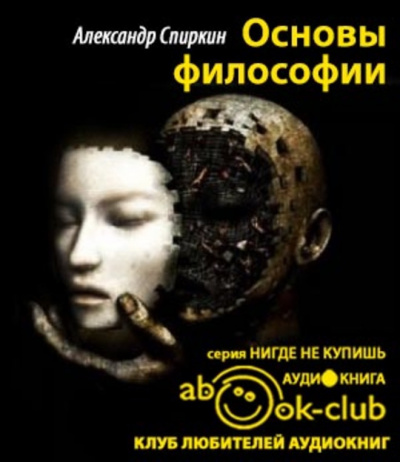Читать книгу "Потаённые страницы истории западной философии - Виктор Валентинович Костецкий"
Шрифт:
Интервал:
Закладка:
Allusion to philosophy in the works of F.M. Dostoevsky
There is one peculiarity in the works of F.M. Dostoevsky: all his characters put forward or discuss some «ideas». One gets the impression that the novels are philosophical or even theological in nature. It turns out that all ideas without exception are not concrete. For example, «beauty will save the world» – when, from whom, did it ever save? As L. Shestov noted, all of Dostoevsky’s «ideas» are «on the eve» of meaning. Readers have an expectation of an «idea», but without the idea itself. This is a literary device of the writer. It makes no sense to accuse the author of understatement or, on the contrary, to declare him a «philosopher». Art lies in the illusory nature of not only feelings, but also thoughts. Dostoevsky as an artist creates illusions of profundity, thereby exhausting his literary intent.
Another literary device used by Dostoevsky is the psychology of gossip. Gossip is a conversational genre in which there is nervous excitement and a thirst to find out everything «to the end». All the writer’s characters are busy with «ideas» and «gossip». As a result, a symbiosis of sensuality and reason, characteristic of the writer’s work, arises. Naturally, on this basis it is not philosophy that arises, but the appearance of its presence. When a writer is declared in all seriousness to be a «philosopher», this clearly harms philosophy as such.
Anti – Huizinga: a different philosophy of play
The article demonstrates the fallacy of the analogies based on which J. Huizinga builds the concept of play as a universal of the world. For a positive presentation of the new concept, the concept of game is subjected to logical and ontological analysis, new materials from the history of culture are involved, particularly, the significance of the eastern harem for the formation of the phenomenon of «playful leisure» and, accordingly, the archetype of the game is substantiated. Analysis of ecstatic practices in culture allows us to clearly distinguish between the game and its various similarities. The identification of play with tomfoolery and the opposition between play and «seriousness» deserve special criticism. «Serious» is opposed to tomfoolery, not play. In the history of culture, the phenomenon of play is absent in primitive culture and appears only with civilization as a surrogate form of adventure, primarily associated with voluntary resort to mortal danger in order to escape from all-consuming boredom. In the early period of civilization, a state of boredom arose naturally in conditions of gigantomania of construction work.
Anti-Peirce: a critique of abstract semiotics
The article attempts to search for the reasons that hinder the development of semiotics as a science. From the history of philosophy and science it is known that semiotics has arisen several times over the past twenty-five centuries, each time unexpectedly ceasing to exist. The author’s research into Aristotle’s «theory of meaning», which does not coincide with traditional interpretations, allows us to assert that problems with semiotics are caused by the false inclusion of language in the «system of signs» and the false identification of sign and signal following the example of C. Pierce.
Anti-Marcuse: the other side of eros and civilization
The article sets out a position that is largely opposite to that presented in the monograph by G. Marcuse «Eros and Civilization». Firstly, labor can never be reduced to play; secondly, eros in civilization has a repressive function; thirdly, hard physical labor has psychotherapeutic value. Labor in civilization has not only an economic significance, but also a medical one (it was the original one during the transition to civilization). By ignoring the psychotechnical role of labor, changes begin in social psychology, leading to obsessions in the field of politics and eroticism. Society’s focus on luxury further provokes obsessions bordering on madness, including institutions of power, economic projects and sexual relations. It is no coincidence that when ancient civilization emerged, not only luxury, but also comfort was banned. In relation to «homo sapiens», it is appropriate to keep in mind that we lose reason, like health, not only individually, but also socially.
Annotation
The article presents a position largely opposing that of G. Marcuse’s monograph “Eros and Civilization”. Firstly, labor is argued to be irreducible to play; secondly, eros within civilization is posited to hold a repressive function. Labor within civilization is attributed not only economic but also psychotechnical significance. Neglecting the psychotechnical role of labor is suggested to incite changes in social psychology, leading to obsessive notions in the realms of politics and eroticism. Society’s orientation towards luxury is further implicated in provoking obsessive ideas bordering on madness, encompassing institutions of power, economic projects, and sexual relationships. The prohibition of not only luxury but also comfort during the emergence of ancient civilizations is noted not to have occurred without reason.
Keywords: madness, impudence, civilization, labor, sex, luxury, taboo, shamanism, hierogamy.
Conclusion
One of the main problems in the history of philosophy is the problem of retelling. The problem of retelling is related to textual analysis, but often one not only does not coincide with the other, but even openly diverges. Retelling in philosophy is not a translation of a text from language to language, not a synopsis, not an annotation, not a tour of quotes, but a presentation of the essence of the author’s position of a classic of philosophical thought to himself and the audience. Philosophers do not have such a task; historians of philosophy do.
Historians of philosophy, when preparing reference publications and teaching aids, do
Внимание!
Сайт сохраняет куки вашего браузера. Вы сможете в любой момент сделать закладку и продолжить прочтение книги «Потаённые страницы истории западной философии - Виктор Валентинович Костецкий», после закрытия браузера.




